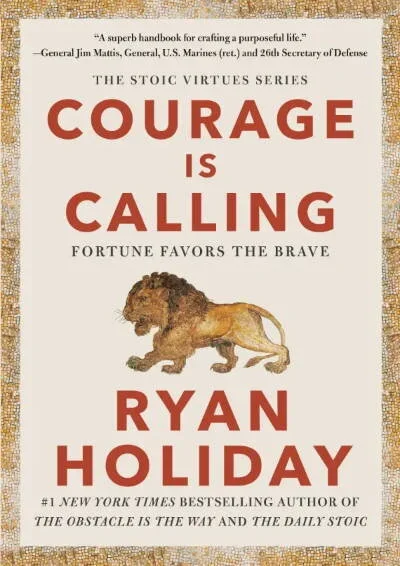Auntie M’s Book Club
One of the most frequently used phrases I hear when horse people are describing their horses to me is “very stoic”. That word stoic seems to mean different things to different people. For some, it has negative connotations. For others, it is meant as the highest praise. When hearing a horse described as stoic, I often follow up with, “Please, say more about that.”
The 1972 edition of the World Book Encyclopedia [my favorite estate sale bargain] describes Stoic philosophy this way:
“The Stoics felt that man achieves his greatest good–which is happiness–by following reason, freeing himself from passions, and concentrating on things he can control.”
There is so much to love there. Don’t we all want to achieve our greatest good for ourselves and our horses? Don’t we want to be reasonable, thinking through challenges rather than overreacting from a place of fear? Don’t we want that from our trail partners? Don’t we want to be fully present in the moment with the wisdom to focus only on the things we can control? 100%!
So, then, how exactly does the word ‘stoic’ apply if a horse were to use it to describe herself? From a temperament perspective, this might be the horse that has accepted her lot in life as a domesticated companion animal. She is the long-suffering lesson horse who hides her discomfort and does the job until it is time to return to the pasture with her friends. This smart mare has accepted that the best way to achieve her greatest good, to eat and not be eaten, is to get along with the humans that provide resources for her and her herd mates. She compromises her instinctual desires and passions to stay safe, often choosing surviving over thriving. A very reasonable way to live, except it begs the question, “Where is the joy?”. That mare really wants to forage 20 miles a day, taking turns napping with her friends and watching the babies grow. She isn’t interested in carrying us around on 20 meter circles, but she does it anyway. What a gift to us.
To whom much is given, much is expected. How do we use the gift of relationship with Equus to our greatest good? We start by actively listening to our horses and learning to communicate in their native language. If we empty our minds and hearts of our own passions and irrational thoughts, we can become present with our horses and ready to receive the messages they are silently sending our way. A “stoic horse” is considered by many horse folks to be very quiet, unopinionated, and even dull. I would argue the exact opposite is true. “Stoic horses” likely find us humans to be very dull because we are such terrible conversationalists. Sad, but true.
Humans make horses uncomfortable when we share space with them because we always seem to be ruminating on some sort of fear. Fear of falling off, fear of getting back on, fear of judgment from other equestrians, fear of how we look in riding pants, fear of our horses getting hurt, fear of how we will pay the vet bill, fear that our horses don't like us, and fear of fear itself.
In his wonderful little book, Courage is Calling, Stoic philosopher Ryan Holiday explains that nothing is possible without the virtue of courage. He argues that what we are really afraid of is consequences. Let that sink in. Every fear is really about the consequences of a particular action. Without action, however, there is no progress–only stagnation at best, and decay at worst. Without risk, there is no reward. Holiday shares inspirational stories of those who have come before us and answered the call of the moment with courage. They braved potentially negative consequences, stepping out of their comfort zones to take action and make change. It’s a lovely, inspirational read, perfect for sharing with those doing life with you.
But, back to the horses. When our stoic horses have the courage to brave the consequences of our displeasure and turn up the volume of their messages in order to change their circumstances, don’t we owe it to them to at least hear them out? Then, can we be brave enough to quit worrying about what our horse friends think about us and our horses? Can we answer the call and take action to learn and try new things to do something about their discomfort? Can we get off the insanity loop of “we’ve always done it this way” and be open to new ways of being with and caring for our horses? Horsemanship gurus describe these courageous actions in challenging moments as getting with them first so that they can get with you, and then you can go together. The risk is vulnerability, but the reward is true unity.
—Melissa is an equine bodyworker in Virginia who enjoys practicing bibliomancy with her $3 estate sale encyclopedias



